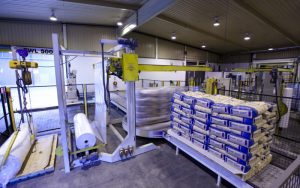
Stock moving companies are a vital part in the supply chain – moving stock between farms, to sale-yards, and to processing plants – but some are now struggling to make ends meet.
Ia Ara Aotearoa Transporting New Zealand chief executive Nick Leggett said increasing staff, compliance and maintenance costs were all starting to have an effect.
Stock transport companies had a fuel adjustment factor in place so the increasing cost of diesel could be passed on, but other increases could not be done so as easily, he said.
“Large corporate customers have been sometimes unwilling to recognise and compensate in movements for other costs, things like wages, maintenance, interest, you know, those things represent a huge proportion of livestock transporters’ costs.
“They’ve been increasing, it’s fair to say in double digits over the last few years. So although fuel rising and volatility is big meat to a large degree, things like the need to pay drivers significantly more to keep them on the job and to attract new workers, those things are often unwillingly recognised by customers of the industry.”
If New Zealand wanted to keep the livestock industry efficient and rolling, a change in the spending mindset was needed, Leggett said.
Tighter margins could only increase staff wages so much – and that meant the industry was also struggling to attract much-needed drivers, he said.
“We discovered in Southland at the end of last year that there were around 90 vacancies for drivers in livestock transport, that hasn’t improved.
“Part of the reason for the shortage is because of wages, and of course there are employer responsibilities there, but customers have to come to the party as well and recognise that they’ve got to pay transport operators the kind of rates that allow them to pay decent wages.”
Stock transport companies were afraid to lift prices because they would risk being undercut by cheaper operators, Leggett said.
They could not just come together and collectively lift prices because that was price fixing ,which was illegal, he said.
“Another issue we are seeing is companies only doing half loads, drivers are showing up to farms expecting to pick up 600 lambs and they’re only taking 450, so that’s affecting their profits.”
Delays at abattoirs was likely behind the issue, Leggett said.
“The problem is the responsibility often falls to the transport operator and they’re not communicated to – they build their business and they’re scheduling around an expectation of what they’re going to carry for the day, and when that changes, they’re not meeting the budget that they were counting on to be able to run their business.”
Leggett said Transporting New Zealand was planning to raise the issues with Minister of Transport and Workplace Safety Michael Wood and Minister of Agriculture Damien O’Connor soon.

























